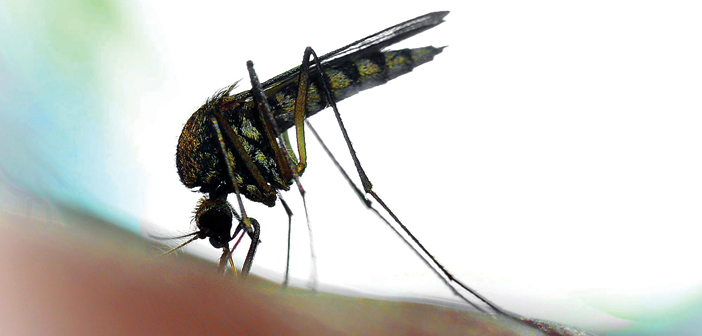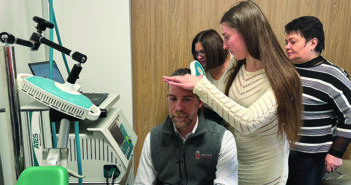Low-income women have the fewest defenses against Zika.
The Zika virus has been in Africa since at least 1947, causing fever and other, usually mild symptoms in only 20 percent of infected people, and then apparently conferring immunity for life. Thus when it first showed up in Brazil a year ago, health professionals weren’t immediately concerned; but startling increases in two rare disorders, microcephaly and Guillain-Barré syndrome, changed their tune. Now the Zika epidemic is overwhelming limited health care resources in parts of Latin America and the Caribbean, with a disparate impact on the poor. Maria Mileno, MD ’84, associate professor of medicine at Alpert Medical School and an infectious disease specialist with an interest in travel and tropical medicine, explains.
Health is inextricably linked to education, economics, and social conditions. The mosquito vector for Zika thrives in areas with overcrowding and stagnant water, and people who live in those areas are less likely to have access to information about the disease, preventive measures, and health care. Meanwhile women in well-to-do areas are less likely to be bitten by the mosquito, and if wealthy pregnant women are infected they have access to more frequent ultrasounds and other tests to check how the baby is developing. These services are not available to poor women. This is true across the board with other diseases, like dengue, chikungunya, and malaria: people in poor, rural areas are more exposed to the insect vectors and have less access to care and less knowledge. If their children are born with microcephaly, they will need facilities that poor countries may not even have. It’s a real tragedy.
People in wealthy nations have better access to information and prevention, and health care if they get sick. Travelers who come to my clinic are concerned about contracting the Zika virus. But it does not cause symptoms in everyone, and symptoms are usually mild. Most seriously it has been linked to Guillain-Barré syndrome, but with high-level ICU care those patients can recover.
It is a major concern for pregnant women. It’s not a good time to risk travel to affected areas if you’re pregnant. If a woman who wants to become pregnant does go, she should wait a full month before trying to get pregnant. Also, men who contract or are exposed to Zika may pass it through semen for up to six months after exposure, so those men should use condoms for six months if they have sex with pregnant women. Clearly more research is needed to understand the broad implications of Zika virus and how best to battle this threat.




